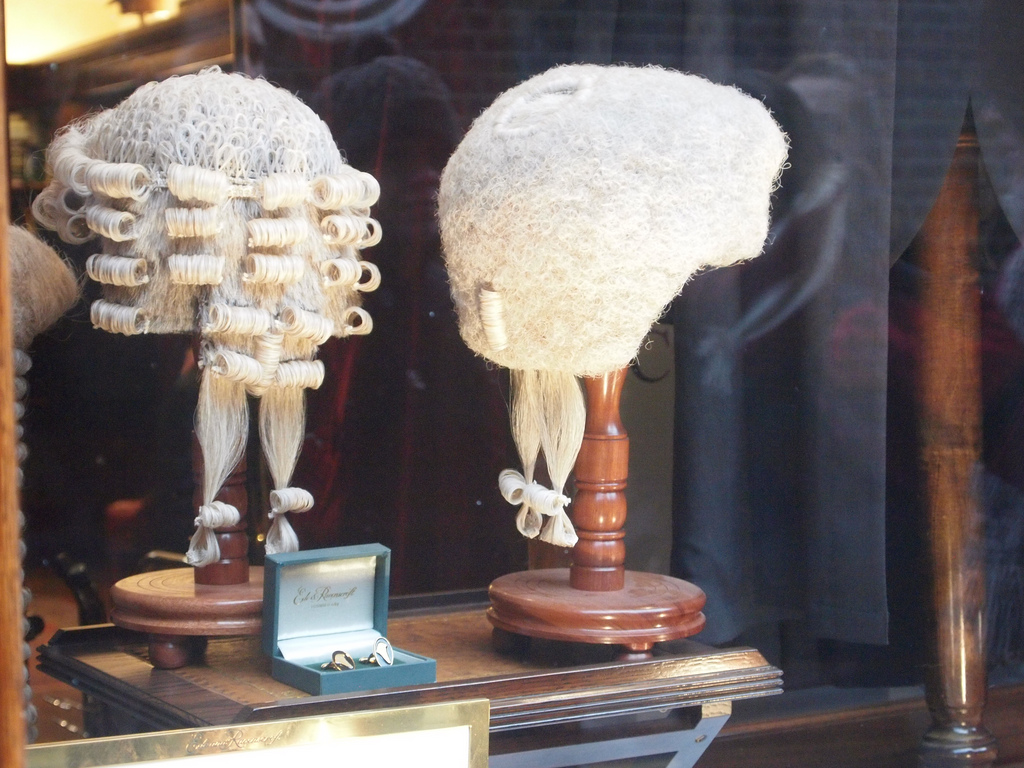
Is Accepting Less Ever Desirable?
August 8, 2012
Mini-Pupillages: the Advantages and my Experiences
August 17, 2012Alastair Hodge was called to the Bar in 1997 as a Barrister of the Inner Temple. He is a tenant at the Chambers of Fiona Barton at 5 Essex Court and specialises in Employment Law. In professional practice, he acts for both employers and employees, and has particular interest in transfer of undertakings, constructive dismissal and discrimination cases. His practice also encompasses a number of Education Law matters, as well as general County and High Court litigation.
Alastair regularly lectures on all aspects of Employment Law and human resources practice, and has written articles on most Employment Law related topics for a variety of publications. He teaches advocacy at all levels and is a member of the Inner Temple Advocacy Training Committee. Renowned for his entertaining presentation style, Alastair is a regular after-dinner speaker. In his spare time, he enjoys playing golf, basket weaving and flying light aircraft.
Pupillage applications
What is the most common mistake you have come across when reviewing pupillage application forms?
Bad spelling and bad grammar. In theory, these mistakes can be cured by the diligent use of a spellchecker.
Could you suggest three things that would get an applicant sent straight to the ‘no’ pile?
1. Save where there are mitigating circumstances, a degree classification that does not comply with Chambers’ requirements
2. An interest in areas of law in which Chambers does not specialise; for example, it is unwise to state an interest in family law and criminal law in a pupillage application for a set specialising in commercial and insurance work
3. A statement in the application that the reason why an individual is coming to the Bar is ‘for the money’.
What are the three most important features that you look for in an application form>
1. Degree classification
2. Interest in the areas of work in which Chambers specialises
3. Clear commitment to a career at the Bar, i.e. through mini-pupillages, marshalling, etc.
Are bullet point answers ever acceptable?
Very much so, and I think in certain parts of the OLPAS form they should be encouraged. Bear in mind that members of a pupillage committee will have a large number of forms to read and will be very grateful to those candidates who keep their applications short and punchy.
How important is it to apply plenty of time before the deadline, and would you ever mark an applicant down for having applied at the last minute?
It is important to leave plenty of time to make sure that your application is as good as it can be. After all, your future career may depend on the contents of the form. However, I would never mark any candidate down for applying that the last minute. That would be extremely unfair.
Could you suggest three reasons why you might invite one applicant to interview over another?
1. Degree classification
2. Commitment to the areas in which Chambers specialises
3. Where a candidate refers on their form to cases in which members of Chambers have been involved, such as ‘I read with interest that Alastair Hodge acted successfully for the Appellant in Basingstoke Press v Clarke’. That shows that an applicant has done his or her research.
How important is it to highlight the relevant skills from common types of work experience such as mini-pupillages or marshalling? Can these be taken as ‘given’ and simply listed instead?
If there are particular skills that have been gleaned from mini-pupillages or marshalling, these should be mentioned. Apart from that, a list of perhaps no more than eight mini-pupillages is appropriate.
If an applicant has a disability, would you encourage them to be open and explain this pre-emptively, or to wait until asked?
Chambers is entitled to enquire about a candidate’s disability for the purpose of inviting them for interview, just in case any reasonable adjustments need to be made. Usually, that provides sufficient information. In the event that further clarification were required, we would usually ask.
If an applicant has a particular reason for slight gaps in their application form, for example mitigating circumstances, would you encourage them to be open and explain this pre-emptively, or wait until asked?
I think all mitigating circumstances should be explained pre-emptively. After all, if there is a clear reason why someone’s degree classification is lower than expected – for example, due to bereavement at the time or medical condition – this has to be flagged up.
Is much significance attached to who you use as a referee? If so, what kind of person would constitute the best/most impressive kind of referee and why?
These days, no. Only a limited number of Chambers will actually make contact with referees. However, in an ideal world, one referee should be an academic (in case contact has to be made to discuss degree classification or BPTC result) and the other should be a practising barrister or judge.
At what stage do you contact referees and what kind of information do you ask them?
In my six years on the pupillage committee in my Chambers, we have never had any need to contact referees.
Pupillage interviews
What is the most common interview mistake?
Probably candidates who do not make a good first impression when they walk into the interview room. The reason for this can vary from untidy appearance to a lack of interest in the interview process. Also, a lack of eye contact with members of the interview panel can be a big turn off.
What three things would you like to see at interview that would encourage you to accept an applicant or interview them further?
1. Good knowledge of the law
2. Great personality
3. Sense of humour.
What are you looking for when you ask a ‘trick’ or unexpected question at interview, for which the candidate is unlikely to have prepared an answer?
I must confess that I used to ask candidates to address the nation as though they were in the Big Brother diary room. They were given 30 seconds to say why they should not be ‘evicted from Chambers’ interview process’. The purpose of the question was not to test their knowledge or otherwise of Big Brother, but to see whether they could think on their feet.
Which is more important at interview: how a question is approached when answering (eg thought processes and oral presentation), or the answer itself (in terms of accuracy, or correctness)?
I guess it depends on the question that is being asked. If it is a question about a specific development in the law of which we would expect candidates to be aware, then we are looking for the correct answer. On other questions which invite opinion, it is more in terms of the process and presentation.





